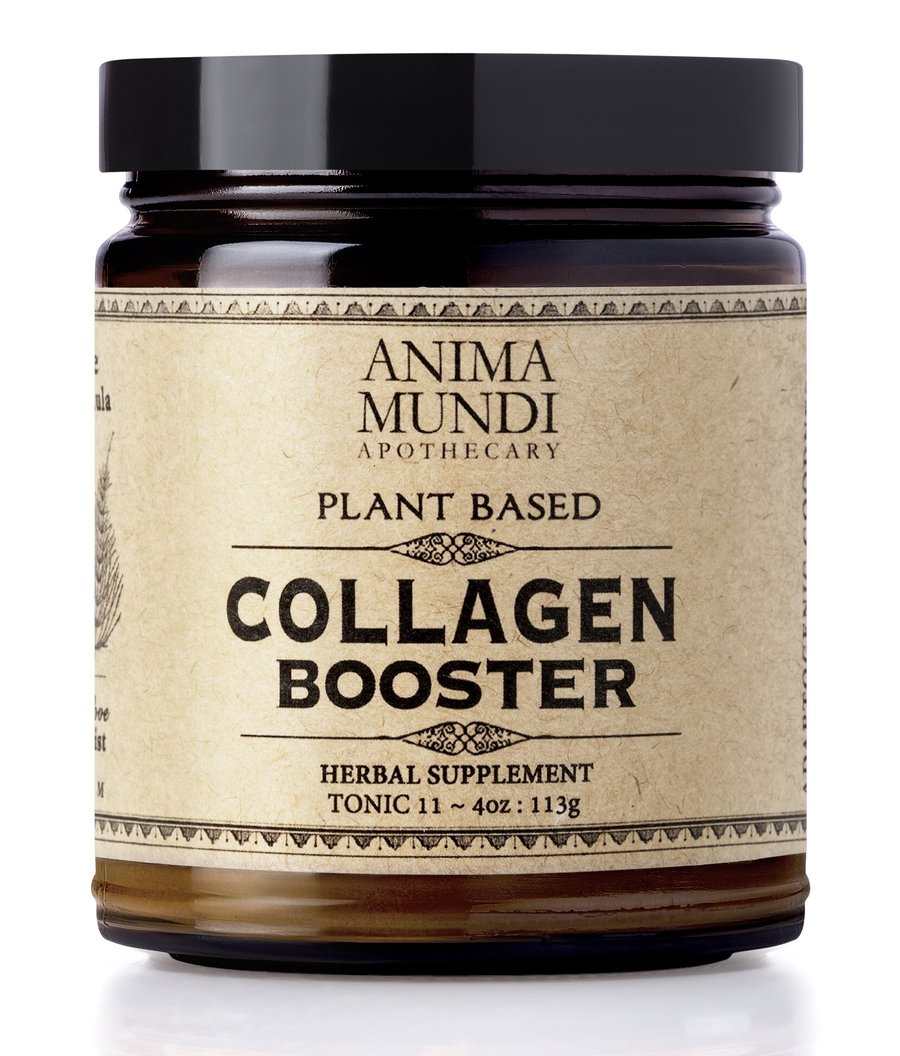Collagen supplements are one of the buzziest wellness trends of the past few years—and one of the most controversial. Collagen supplements, be they in liquid, powder, or capsule form, are almost always derived from animals (there are vegan-friendly collagen supplements, but these aren’t actually made of collagen; they’re designed to boost the body’s own collagen production—more on those in a bit!).
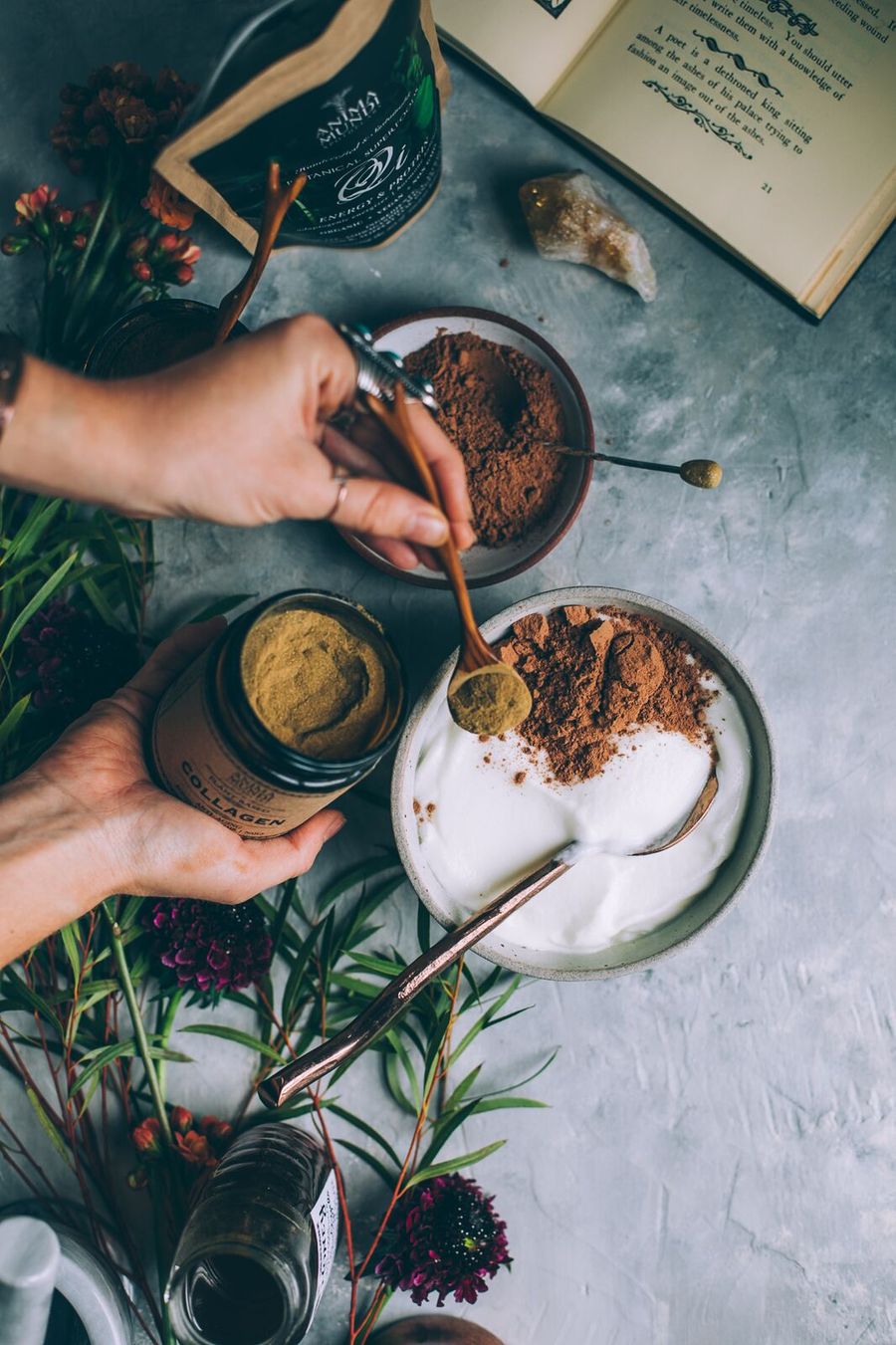
But first, a review of collagen itself. Collagen is a structural protein the body creates from amino acids. Collagen is often associated with skin health, and when the body’s own production of collagen begins to taper off around the time we hit thirty, we usually witness the appearance of our skin responding accordingly in the form of reduced suppleness, poorer wound recovery, and increasingly noticeable lines and wrinkles. Collagen plays a greater role throughout the entire body, however; different types of collagen are present in muscles, cartilage, bones, blood vessels, and even dentin in teeth. So it’s pretty important to the body’s overall function and affects how we feel from the inside out.
Understandably, because folks tend to experience several side effects of declining collagen production from reduced skin suppleness to achy joints, many consumers are more than amenable to supplementing collagen, especially when the supplements receive widespread praise from reviewers—and even some dermatologists, estheticians, and naturopaths. Moreover, the promises from companies offerings collagen supplements are arguably tempting.
Common claims include improvement in skin suppleness (including increased plumpness and fewer wrinkles), stronger hair and nails, reduced joint point, and more muscle recovery after exertion, among other benefits. Interestingly, for many consumers of collagen supplements, the results do seem to be there (if the dozens of reviews I’ve read are to be believed). While few collagen users claim miraculous results (no one goes from looking 50 to looking 18), many express that the results are generally positive and noticeable. Consumer reviews, of course, are only part of the equation.
For the smart skeptic, the burning questions surrounding collagen supplements include: Do they work? Are they safe? Are they ethical? Do doctors approve? What does the science say?
Spoiler alert: As a vegan site, Peaceful Dumpling does not endorse animal-based collagen supplements (i.e. most of the collagen supplements on the market), but I will address these questions in regard to traditional collagen supplements to hopefully give a more complete picture of this snippet of the supplements industry and thus provide context for plant-based collagen-building supplements to help you make an informed decision about whether or not to try vegan collagen supplements.
Ok, let’s jump in!
Are collagen supplements ethical? Are they safe? Collagen supplements made from animals are often bovine but may also be derived from pigs, fish, and chickens (and eggs). Of course, the issues of ethics (namely, animal cruelty and the environmental implications of farming animals) and purity/contaminants (heavy metals in fish, hormones in beef, etc.) that accompany consuming animals also accompany the ingesting of animal collagen.
Do they work? What does the science say? In terms of efficacy, much of the controversy around collagen supplements concerns the idea that the body may not be able to properly absorb the collagen as whole collagen but rather breaks its down into individual amino acids, rendering it no more than a protein supplement. To ensure that collagen is properly absorbed, manufacturers hydrolyze, or “shrink,” collagen to make it easily absorbed. This modification, however, doesn’t necessarily guarantee that ingestible collagen will do its job—or magically be directed to our skin! As with most nutrients, the amino acids in collagen would theoretically be used at the body’s discretion, i.e., where they’re needed most.
Generally speaking, medical opinion has regarded collagen supplements as little more than a fad, but the tide may be turning. New York dermatologist and collagen supplement-skeptic Whitney Bowe explains, “Just in the last few years, there have been some impressive studies showing that ingestible collagen can indeed impact the appearance of skin.” One study, for example, demonstrated that consumption of specific bioactive collagen peptides resulted in reduced appearance of wrinkles after an eight-week period. However, Bowe remains cautious and explains that the research is still in its infancy. Meanwhile, some dermatologists outright deny that these supplements can do anything at all, suggesting instead that we eat a healthy diet, avoid smoking, and use sunscreen daily.
Indeed, the jury is still out, but it seems possible that the body could be responsive to supplements designed to boost collagen.
What does this mean for vegan collagen supplements?
Vegan collagen supplements do not contain collagen (an animal product). Rather, they’re a combination of various plant ingredients that are believed to support the body’s natural collagen production such as vitamins A and C, amino acids, and antioxidants.
Given that the body uses nutrients where they’re needed most, vegan collagen supplements, like their animal-based counterparts, may not guarantee increased collagen production, especially if our more vital functions need those nutrients. Furthermore, while individual ingredients in vegan collagen may be well studied (take vitamin C, for example), I was unable to find any peer-reviewed research on vegan collagen supplements, which makes sense, given that they are such a small part of a new market.
So with that, we’re a bit on our own with vegan/vegetarian collagen supplements, meaning that, as with any other supplement, stick with reputable brands that eschew fillers and processed ingredients in favor of real food-derived ingredients. The following are a few vegan collagen-boosting supplements that meet these standards—and look downright divine.
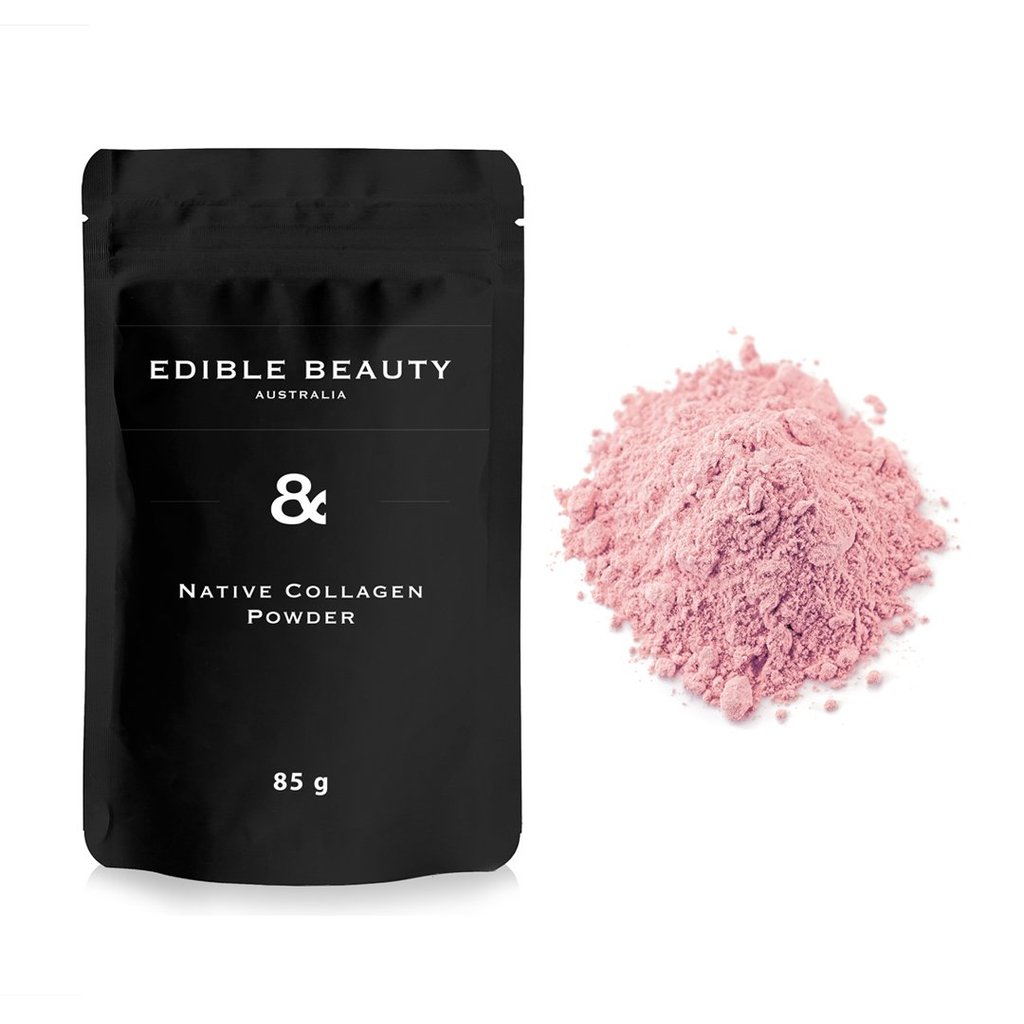
Edible Beauty Native Plant-Based Collagen Powder
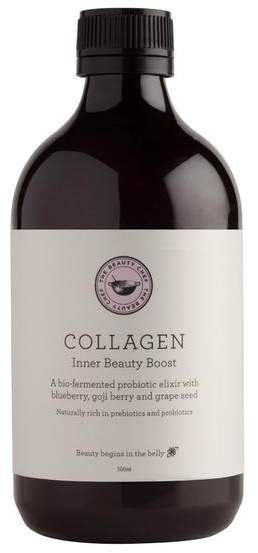
The Beauty Chef Collagen Inner Beauty Boost
Anima Mundi Plant Collagen Booster
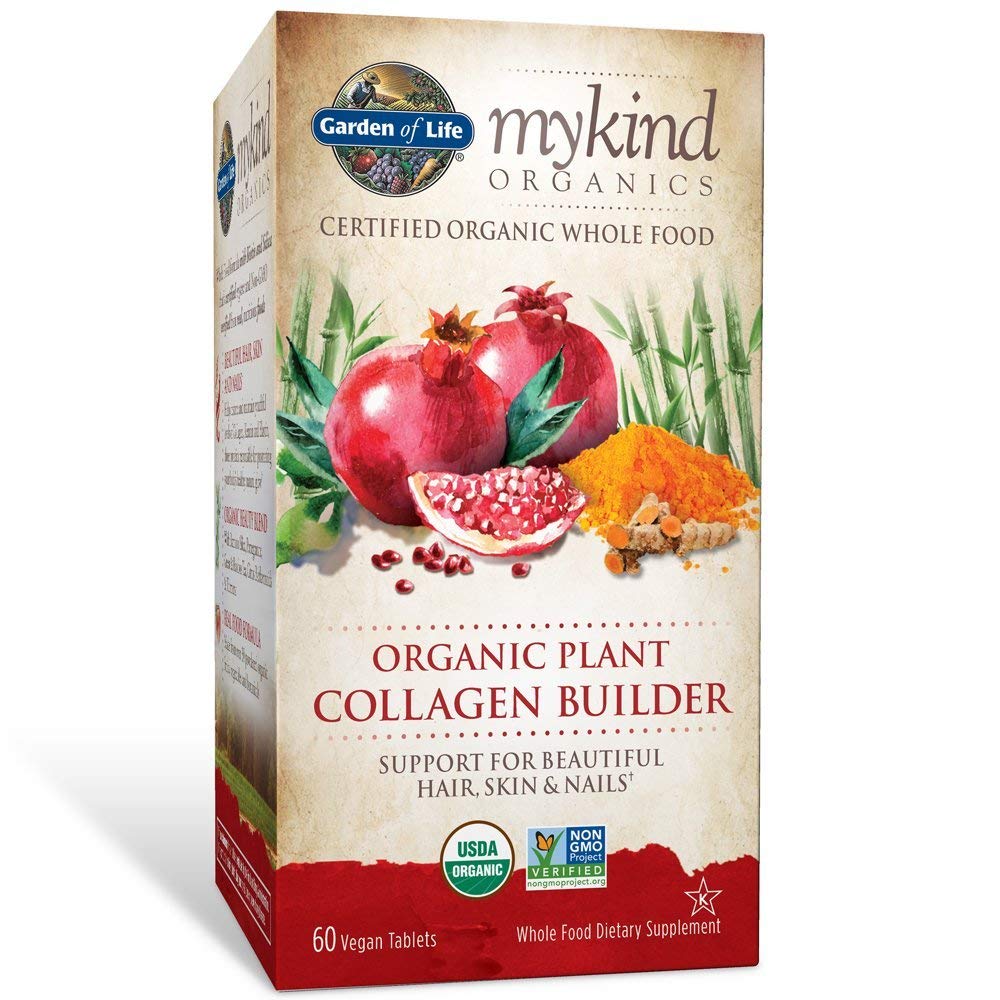
Garden of Life Organic Plant Collagen Builder
Personally, I tend to be a praying agnostic when it comes to vegan collagen supplements. I love the idea of them, and I’ve taken a few (the Edible Beauty Collagen Powder has a slight berry flavor and goes well with oatmeal!). I hope vegan collagen works—though I’ve yet to consume these supplements regularly enough to make any good observations. Plus, as I’m shy of thirty, I wonder if maybe my collage production is hanging in there for the most part? In the meantime, I think I’ll focus on my healthy diet with possibly a little vegan collagen boosters sprinkled in for good luck.

What are your thoughts on collagen supplements?
Related: Yuzu Is *The* Ingredient You Need For A Bright Complexion In The Depths Of Winter
These Vegan Collagen Boosting Tips Are Cheap, Accessible *And* Crazy Effective
Vegan Bone Broth Alternative (Collagen-Boosting Veggie Plate)
Collagen Deficiency Goes Beyond Your Face–What It Means For Your Body & Mind (!)
Get more like this—Subscribe to our daily inspirational newsletter for exclusive content!
__
Photo: Respective brands, featured (Anima Mundi)

